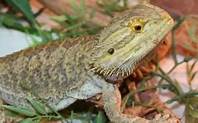What Snake is the Best Pet?
With their striking colors, patterns, and graceful movements, snakes have captivated humans for centuries. If you're considering getting a pet snake, there are a few things you should keep in mind. First, do your research and choose a snake that is appropriate for your experience level and lifestyle. Some snakes, such as ball pythons and corn snakes, are relatively easy to care for and make good pets for beginners. Others, such as venomous snakes, require specialized care and should only be kept by experienced reptile keepers.

Choosing the Right Snake
There are a few things to consider when choosing a pet snake.
1. Size: Snakes come in a wide range of sizes, from small garter snakes that can fit in the palm of your hand to large boas and pythons that can grow to be over 20 feet long. Choose a snake that is an appropriate size for your enclosure and your ability to handle it.
2. Temperament: Some snakes are more docile than others. Ball pythons and corn snakes are generally considered to be good-natured and easy to handle, while some other snakes, such as king snakes and rat snakes, can be more aggressive.
3. Diet: Snakes are carnivores and their diet consists mainly of rodents and other small animals. Some snakes, such as garter snakes, will also eat fish, frogs, and insects. Be sure to provide your snake with a diet that is appropriate for its species and age.
4. Enclosure: Snakes need a secure enclosure that is large enough for them to move around and stretch out. The enclosure should also have a hiding place where the snake can feel safe and secure.
5. Heating and Lighting: Snakes are ectothermic, which means that they rely on external heat sources to regulate their body temperature. Provide your snake with a heat lamp and a basking spot so that it can warm itself up. You should also provide your snake with UVB lighting to help it absorb calcium and produce vitamin D3.
Care and Maintenance
Once you have chosen a pet snake, it is important to provide it with proper care and maintenance.
1. Feeding: Snakes typically eat once or twice a week. The frequency of feeding will depend on the size of the snake and its species. Be sure to feed your snake the proper amount of food and avoid overfeeding.
2. Cleaning: Snakes need their enclosure cleaned regularly to prevent the buildup of waste and bacteria. Spot clean the enclosure daily and do a complete cleaning once a week.
3. Handling: Snakes are not social animals and do not need to be handled on a regular basis. However, it is important to handle your snake occasionally to check for any health problems and to get it used to being handled. Be sure to handle your snake gently and support its body at all times.
4. Veterinary Care: Snakes should be taken to the veterinarian for regular checkups. The veterinarian can check for any health problems and provide you with advice on how to properly care for your snake.
Conclusion
Snakes can make fascinating and rewarding pets. However, it is important to do your research and choose a snake that is appropriate for your experience level and lifestyle. With proper care and maintenance, your snake can be a healthy and happy pet for many years to come.
Declaration: All article resources on this website, unless otherwise specified or labeled, are collected from online resources. If the content on this website infringes on the legitimate rights and interests of the original author, you can contact this website to delete it.




